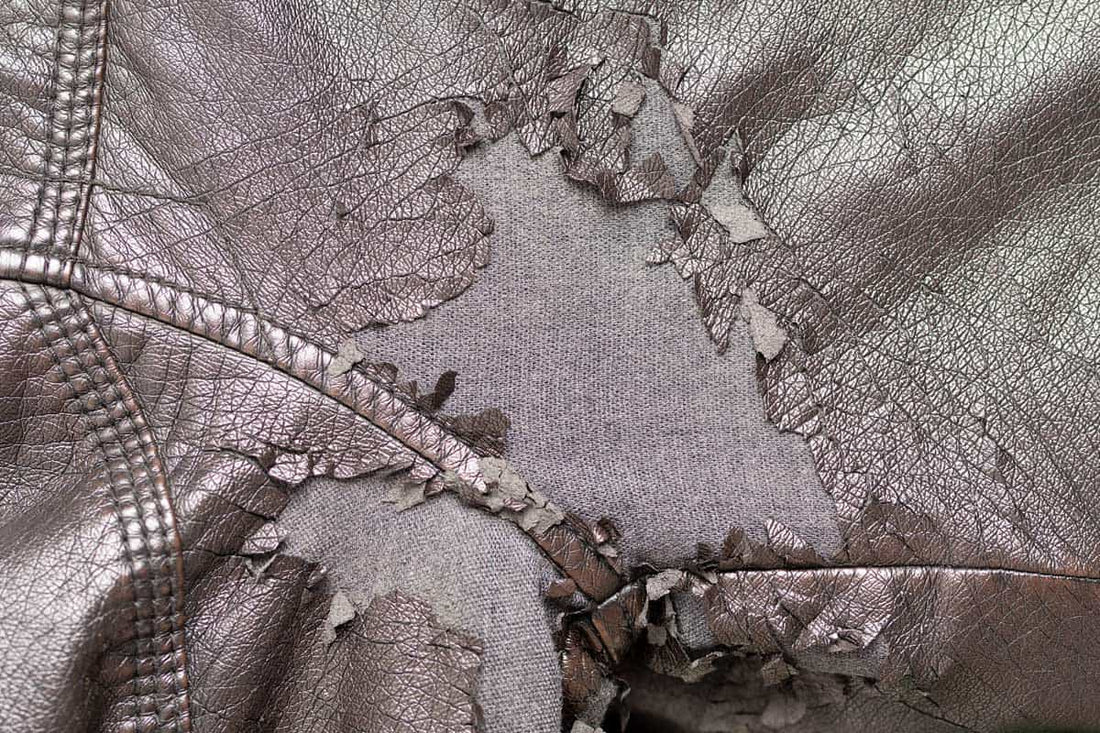8326634275045,
8132476600549,
8326609502437,
8276370882789,
8276363444453,
8132483973349,
8132460904677,
8432440967397,
8432440475877,
8432439263461,
8432329261285,
8432326738149,
8432315400421,
8419173368037,
8408303960293,
8407371808997,
8407371284709,
8407371251941,
8407367909605,
8407367647461,
8407367352549,
8407063232741,
8407062511845,
8407061332197,
8407058546917,
8407058415845,
8407058317541,
8406199697637,
8406196945125,
8406196715749,
8405334851813,
8405334327525,
8405333836005,
8405333442789,
8405333377253,
8400914022629,
8400908681445,
8400849273061,
8387891265765,
8369331732709,
8351410815205,
8351402361061,
8326896484581,
8326891340005,
8326612451557,
8276358856933,
8276290470117,
8232712503525,
8232705818853,
8232699724005,
8245047722213,
8245047099621,
8245046411493,
8245044838629,
8245041955045,
8245041463525,
8245040447717,
8245037039845,
8010183311589,
8053737324773,
8206959608037,
8069466718437,
8287874384101,
8287878250725,
8287879266533,
8070827704549,
8301794066661,
8069180195045,
8069176426725,
8069177868517,
8008058405093,
8051666387173,
8245510406373,
8136559952101,
8344697503973,
8342010855653,
8342012887269,
8342013608165,
8050819170533,
8011830165733,
8404578664677,
8404576960741,
8263321288933,
8238667366629,
8238683652325,
8238673658085,
8408305533157,
8408303960293,
8339353698533,
8339356123365,
8263307690213,
8432040083685,
8432057450725,
8432057647333,
8432013967589,
8432018063589,
8432019570917,
8432020193509,
8291678028005,
8291678224613,
8291678683365,
8291679109349,
8045718601957,
8050537595109,
8050550014181,
8430252523749,
8351506858213,
8351538118885,
8233505292517,
8235316052197,
8235317756133,
8235320574181,
8235323064549,
8235324408037,
8235324768485,
8235326439653,
8235328241893,
8235989827813,
8235990352101,
8236527845605,
8245037039845,
8245040447717,
8245041463525,
8245041955045,
8245044838629,
8245046411493,
8245047099621,
8245047722213,
8245051392229,
8245054243045,
8245085733093,
8245088846053,
8249667059941,
8249672663269,
8249818644709,
8249821561061,
8249825951973,
8249827950821,
8249656115429,
8249664110821,
8326578962661,
8326609502437,
8326612451557,
8326634275045,
8339872678117,
8349755179237,
8244831256805,
8634289684709,
8633945096421,
8633945456869,
8244976189669,
8244975534309,
8244974190821,
8244972847333,
8628780466405,
8628782792933,
8418199306469,
8418199765221,
8628787773669,
8244829356261,
8244824932581,
8242270077157,
8244807008485,
8244768342245,
8242269520101,
8242228068581,
8242228723941,
8242229772517,
8242230362341,
8242226528485,
8242225742053,
8242225021157,
8242223481061,
8242221744357,
8242218926309,
8242205032677,
8242103845093,
8242138120421,
8242166333669,
8242151915749,
8242147360997,
8242132844773,
8242131763429,
8242130616549,
8242128027877,
8242126618853,
8242123899109,
8242119803109,
8242115215589,
8242098372837,
8325434179813,
8325432312037,
8325431197925,
8325435195621,
8325436801253,
8308451442917,
8167552123109,
8167558316261,
8167564148965,
8167555760357,
8226455814373,
8226457125093,
8325593301221,
8325437391077,
8228935565541,
8228935958757,
8224817905893,
8325620498661,
8325620007141,
8076597035237,
8403307593957,
8078646608101,
8078645821669,
8078644969701,
8077943341285,
8077942653157,
8077949567205,
8402622709989,
8402638897381,
8402647908581,
8403312476389,
8403758153957,
8410338754789,
8410381353189,
8410402324709,
8410427195621,
8410427982053,
8410429096165,
8410669154533,
8460119048421,
8460125831397,
8461205176549,
8466818957541,
8468106346725,
8468108673253,
8468110835941,
8468113686757,
8476716597477,
8402257477861,
8276370882789,
8276363444453,
8276358856933,
8407367909605,
8407367647461,
8407367352549,
8407371251941,
8407371808997,
8407371284709,
8066284683493,
8066300510437,
8066287337701,
8066294218981,
8162912207077,
8162909454565,
8162905030885,
8162905522405,
8405333377253,
8405333442789,
8405333836005,
8405334851813,
8405334327525,
8162903785701,
8407061332197,
8407062511845,
8407063232741,
8050550014181,
8050537595109,
8045718601957,
8045722271973,
8050611060965,
8045708968165,
8050624921829,
8050629640421,
8070494650597,
8070545113317,
8069180195045,
8050550014181,
8069466718437,
8207210119397,
8342010298597,
8050819170533,
8070838288613,
8010183311589,
8408320704741,
8050505351397,
8339753926885,
8339351240933,
8245510406373,
8238667366629,
8066257420517,
8224817905893,
8254403543269,
8339876806885,
8432057647333,
8292030218469,
8421759582437,
8421756895461,
8421751783653,
8421748867301,
8421731762405,
8421737234661,
8421767774437,
8421777670373,
8245054243045,
8245051392229,
8206959608037,
8069441978597,
8206957084901,
8206957674725,
8069466718437,
8242075074789,
8136559952101,
8263307690213,
8263321288933,
8304777920741,
8014446559461,
8303145844965,
8136552972517,
8136549597413,
8228917182693,
8228908368101,
8228912136421,
8228909580517,
8227746709733,
8227753165029,
8227735797989,
8227719971045,
8227833577701,
8227820306661,
8227811000549,
8227792486629,
8228896407781,
8228896833765,
8228899029221,
8228898570469,
8287879266533,
8287874384101,
8287878250725,
8301569147109,
8349287678181,
8349286793445,
8349288890597,
8349289480421,
8349280370917,
8349281059045,
8349281616101,
8349282500837,
8404040941797,
8404046774501,
8404046053605,
8404051853541,
8404051329253,
8404050313445,
8226457125093,
8226455814373,
8228935958757,
8228935565541,
8403626918117,
8403633570021,
8403614040293,
8403758153957,
8404535705829,
8404537016549,
8242166333669,
8242151915749,
8242147360997,
8405329772773,
8403296846053,
8364402114789,
8076592644325,
8076592152805,
8076538151141,
8075771642085,
8075752112357,
8010406068453,
8238711079141,
8238709604581,
8238667366629,
8238683652325,
8238673658085,
8308295336165,
8308295041253,
8308294648037,
8276609106149,
8276573749477,
8276557267173,
8228917182693,
8228912136421,
8228909580517,
8228908368101,
8238732148965,
8238697808101,
8238693581029,
8066329477349,
8050522587365,
8019426574565,
8010399973605,
8325431197925,
8325432312037,
8325434179813,
8325435195621,
8325436801253,
8407201415397,
8407216652517,
8407342186725,
8407342317797,
8407342612709,
8407343038693,
8407343071461,
8407343104229,
8561441145061,
8567798464741,
8567812653285,
8561423778021,
8675926933733,
8675960160485,
8675973333221,
8593287381221,
8456158118117,
8597688942821,
8344697503973,
8342010298597,
8342010691813,
8342010855653,
8342012887269,
8342013608165,
8342014034149,
8342014099685,
8342014460133,
8339355730149,
8339356123365,
8339354976485,
8339353698533,
8339351240933,
8339352518885,
8408320704741,
8408303960293,
8408305533157,
8408310317285,
8408310972645,
8408341774565,
8339753926885,
8339728236773,
8339750879461,
8339761463525,
8339761168613,
8339761529061,
8339828703461,
8339813859557,
8339826540773,
8339827032293,
8339827917029,
8339830669541,
8344629838053,
8339830046949,
8339829293285,
8339876806885,
8339878576357,
8339880771813,
8340024099045,
8340011188453,
8340040515813,
8340010074341,
8339872678117,
8339662176485,
8339660669157,
8339436798181,
8162270675173,
8160322519269,
8162273755365,
8162269528293,
8162249670885,
8162281390309,
8162256552165,
8160332415205,
8162275557605,
8162271396069,
8162253734117,
8162280767717,
8162257600741,
8162247180517,
8162279719141,
8162255503589,
8162248491237,
8162278539493,
8162268381413,
8162243379429,
8162277327077,
8008058405093,
8051666387173,
8245510406373,
8207230435557,
8207230599397,
8207233515749,
8207234400485,
8207238988005,
8207278112997,
8207251341541,
8207278866661,
8207204614373,
8207210119397,
8207210676453,
8207211593957,
8342129443045,
8207394111717,
8207403647205,
8207402926309,
8207399026917,
8291678224613,
8291678028005,
8291678683365,
8291679109349,
8132476600549,
8276370882789,
8276363444453,
8132483973349,
8132460904677,
8276358856933,
8276290470117,
8133670895845,
8132723245285,
8132689494245,
8132676321509,
8132632215781,
8132549574885,
8132516184293,
8132496425189,
8132476600549,
8132516184293,
8132460904677,
8132483973349,
8132496425189,
8133670895845,
8400849273061,
8132689494245,
8132676321509,
8132723245285,
8132549574885,
8132632215781,
8132618158309,
8276290470117,
8276358856933,
8276363444453,
8276370882789,
8301303890149,
8326578962661,
8326609502437,
8326612451557,
8326634275045,
8326891340005,
8326896484581,
8400908681445,
8400914022629,
8407367352549,
8407367647461,
8407367909605,
8407371251941,
8407371284709,
8407371808997,
8369331732709,
8432440475877,
8432440967397,
8432439263461,
8419173368037,
8432315400421,
8432326738149,
8432329261285,
8229799198949,
8229794447589,
8229792088293,
8229760270565,
8229750046949,
8229746114789,
8232705818853,
8232699724005,
8232712503525,
8387891265765,
8232944828645,
8232947351781,
8342180823269,
8231511621861,
8232636448997,
8232629240037,
8232649818341,
8232657486053,
8231522762981,
8231517356261,
8232619933925,
8230600966373,
8231084589285,
8230623543525,
8231417741541,
8230619644133,
8230621937893,
8230618824933,
8230616596709,
8229894553829,
8229898813669,
8230557090021,
8229900976357,
8229895897317,
8229897830629,
8229895405797,
8229895110885,
8410338754789,
8308451442917,
8410429096165,
8410427982053,
8410427195621,
8410402324709,
8410381353189,
8283285455077,
8066329477349,
8015250129125,
8015255601381,
8167552123109,
8167555760357,
8167558316261,
8167564148965,
8167581778149,
8167586005221,
8167590265061,
8167618019557,
8066035744997,
8066053800165,
8066044559589,
8066057896165,
8228940251365,
8228940775653,
8228940579045,
8229116772581,
8229119721701,
8224952516837,
8224828195045,
8476716499173,
8561493475557,
8567845388517,
8567861051621,
8567878418661,
8568115790053,
8568137777381,
8568162746597,
8568345133285,
8308294648037,
8308295041253,
8308295336165,
8642017788133,
8070816399589,
8070834028773,
8070838288613,
8070823870693,
8070820921573,
8070827704549,
8070843269349,
8070866075877,
8070872236261,
8070850773221,
8070856278245,
8070860570853,
8071094534373,
8071457210597,
8071443120357,
8071437025509,
8071519076581,
8071507771621,
8071499383013,
8071569080549,
8166615711973,
8075695522021,
8075694309605,
8075693031653,
8225333674213,
8225334001893,
8225334821093,
8225631600869,
8225669611749,
8407342186725,
8407342317797,
8407342612709,
8466818957541,
8468106346725,
8468108673253,
8468110835941,
8468113686757,
8598168043749,
8598169845989,
8598171975909,
8598173810917,
8656452255973,
8667880882405,
8667882586341,
8667884978405,
8170001301733,
8170005364965,
8170010673381,
8008058405093,
8051666387173,
8245510406373,
8206959608037,
8069441978597,
8206957084901,
8206957674725,
8069466718437,
8136559952101,
8011830165733,
8050810257637,
8050814648549,
8050817106149,
8050819170533,
8050823102693,
8050825494757,
8050827460837,
8050832834789,
8075718361317,
8224831340773,
8276609106149,
8276573749477,
8276557267173,
8263321288933,
8263307690213,
8254403543269,
8254402035941,
8242075074789,
8238711079141,
8238709604581,
8238697808101,
8238693581029,
8238683652325,
8238673658085,
8238667366629,
8232657486053,
8232649818341,
8232636448997,
8232629240037,
8232619933925,
8231522762981,
8231517356261,
8231511621861,
8231417741541,
8231084589285,
8230623543525,
8230621937893,
8132476600549,
8132496425189,
8132460904677,
8132483973349,
8132516184293,
8400849273061,
8133670895845,
8326578962661,
8326634275045,
8132549574885,
8326609502437,
8326896484581,
8326612451557,
8400908681445,
8301303890149,
8400914022629,
8326891340005,
8132723245285,
8132689494245,
8132676321509,
8132632215781,
8132618158309,
8245088846053,
8245085733093,
8236527845605,
8235328241893,
8235324768485,
8244831256805,
8633945096421,
8628787773669,
8244829356261,
8244824932581,
8244768342245,
8242230362341,
8242229772517,
8242228723941,
8242228068581,
8242226528485,
8242225742053,
8242225021157,
8242132844773,
8242131763429,
8242130616549,
8242128027877,
8242126618853,
8242123899109,
8242103845093,
8419651387621,
8419307454693,
8419390062821,
8419633561829,
8419625763045,
8113611702501,
8113611079909,
8113609244901,
8109595787493,
8109587398885,
8109571965157,
8109509837029,
8109498171621,
8109491749093,
8109481197797,
8109470810341,
8109458227429,
8109277085925,
8109218234597,
8109211680997,
8109207814373,
8109189595365,
8109185040613,
8292030218469,
8232947351781,
8066044559589,
8066035744997,
8066053800165,
8066057896165,
8066252832997,
8066250932453,
8066257420517,
8228940579045,
8228940775653,
8229116772581,
8229119721701,
8050508890341,
8050505351397,
8050498044133,
8228940251365,
8050525470949,
8050611060965,
8045722271973,
8066071789797,
8066069954789,
8066076770533,
8050550014181,
8050537595109,
8045718601957,
8019059835109,
8224828195045,
8224952516837,
8326635552997,
8387791356133,
8476716499173,
8162270675173,
8160322519269,
8162273755365,
8162269528293,
8162249670885,
8162281390309,
8162256552165,
8160332415205,
8162275557605,
8162271396069,
8162253734117,
8162280767717,
8162257600741,
8162247180517,
8162279719141,
8162255503589,
8162248491237,
8162278539493,
8162268381413,
8162243379429,
8162277327077,
8244976189669,
8244975534309,
8244974190821,
8244972847333,
8244831256805,
8244829356261,
8244824932581,
8244807008485,
8244768342245,
8242269520101,
8242270077157,
8418199306469,
8418199765221,
8020619559141,
8050842009829,
8050839093477,
8050840371429,
8050844696805,
8020608286949,
8065958215909,
8010169614565,
8065941012709,
8065949794533,
8065955004645,
8675973333221,
8675960160485,
8675926933733,
8675694641381,
8667884978405,
8667882586341,
8667880882405,
8656452255973,
8642017788133,
8598173810917,
8598171975909,
8598169845989,
8598168043749,
8568345133285,
8568162746597,
8568137777381,
8568115790053,
8567878418661,
8567861051621,
8567845388517,
8567812653285,
8567798464741,
8561493475557,
8561441145061,
8561423778021,
8482705998053,
8482690466021,
8482652946661,
8482647867621,
8482645475557,
8482627879141,
8476716859621,
8476716597477,
8476716499173,
8469006680293,
8469005730021,
8469001928933,
8468999110885,
8466818957541,
8461159006437,
8461157007589,
8460125831397,
8460119048421,
8432329261285,
8432326738149,
8432315400421,
8432059056357,
8432057450725,
8432040083685,
8432020193509,
8407063232741,
8407062511845,
8407061332197,
8407058546917,
8407058415845,
8407058317541,
8405334851813,
8405334327525,
8405333836005,
8405333442789,
8405333377253,
8162912207077,
8162909454565,
8162905522405,
8162905030885,
8162903785701,
8246409134309,
8224817905893,
8224918077669,
8224922501349,
8246367256805,
8224945733861,
8246401401061,
8308531626213,
8311011573989,
8224831340773,
8246456189157,
8224952516837,
8224828195045,
8246416343269,
8330322706661,
8408467996901,
8408895226085,
8410669154533,
8412683043045,
8405329772773,
8075752112357,
8076538151141,
8075771642085,
8076568625381,
8076567019749,
8421777670373,
8421767774437,
8421759582437,
8421756895461,
8421751783653,
8421748867301,
8421737234661,
8421731762405,
8180543160549,
8180542832869,
8180541751525,
8180541587685,
8180541358309,
8180540997861,
8180540604645,
8180540408037,
8180540309733,
8180522418405,
8180506329317,
8180473463013,
8180467302629,
8180463829221,
8180460028133,
8180453802213,
8180448362725,
8179501629669,
8179498680549,
8179496550629,
8179492684005,
8179492290789,
8179491373285,
8179337167077,
8179336708325,
8179336216805,
8179335758053,
8179334807781,
8179334119653,
8179331825893,
8179309740261,
8179306430693,
8179305316581,
8179304595685,
8179303776485,
8179299483877,
8162281390309,
8162280767717,
8162279719141,
8162278539493,
8162277327077,
8162275557605,
8351410815205,
8351402361061,
8351389286629,
8308816216293,
8308803141861,
8011830165733,
8050825494757,
8050819170533,
8075718361317,
8050832834789,
8050827460837,
8050817106149,
8050814648549,
8050810257637,
8050823102693,
8418527019237,
8418527346917,
8418527838437,
8418528133349,
8235990352101,
8224788840677,
8224707969253,
8224707281125,
8224706494693,
8468842184933,
8468902117605,
8468903264485,
8468904706277,
8469005730021,
8469006680293,
8468999110885,
8469001928933,
8325836603621,
8325640618213,
8326390055141,
8326394577125,
8325801869541,
8326399328485,
8325706645733,
8325639110885,
8325641437413,
8325760942309,
8325743804645,
8325737873637,
8242166333669,
8242151915749,
8242147360997,
8242138120421,
8242132844773,
8242131763429,
8242130616549,
8242128027877,
8242126618853,
8242123899109,
8242119803109,
8242115215589,
8242103845093,
8242098372837,
8421731762405,
8421737234661,
8421751783653,
8421748867301,
8421756895461,
8421759582437,
8421767774437,
8421777670373,
8430851522789,
8431807791333,
8431804612837,
8431425421541,
8431427289317,
8431803105509,
8431803859173,
8431778693349,
8431789375717,
8431797436645,
8431427944677,
8431785804005,
8431428796645,
8404578664677,
8404576960741,
8351506858213,
8351530254565,
8351538118885,
8351543066853,
8351617024229,
8351614173413,
8351614861541,
8351615779045,
8327823458533,
8327827718373,
8327826276581,
8327825883365,
8327822377189,
8327821721829,
8327820902629,
8327819395301,
8351477858533,
8351488377061,
8351483527397,
8351490179301,
8351474155749,
8404580008165,
8327884865765,
8327885783269,
8327886373093,
8327888306405,
8327897317605,
8348822601957,
8348830859493,
8348834988261,
8348840362213,
8348847833317,
8349037789413,
8349037953253,
8349038444773,
8349041721573,
8349733355749,
8349734404325,
8349735026917,
8349736730853,
8349744857317,
8349754458341,
8349755179237,
8349755834597,
8349757964517,
8349762978021,
8349763502309,
8349764059365,
8050505351397,
8050508890341,
8050498044133,
8050525470949,
8050327584997,
8050321981669,
8050522587365,
8245041955045,
8245041463525,
8245040447717,
8245037039845,
8244976189669,
8244975534309,
8244974190821,
8244972847333,
8244768342245,
8244807008485,
8242269520101,
8242270077157,
8244824932581,
8244829356261,
8628787773669,
8244831256805,
8634289684709,
8633945096421,
8633945456869,
8418199306469,
8418199765221,
8628780466405,
8628782792933,
8245054243045,
8245051392229,
8179299483877,
8179303776485,
8179304595685,
8179305316581,
8179306430693,
8179309740261,
8179335758053,
8179334807781,
8179336216805,
8179337167077,
8179336708325,
8179491373285,
8179334119653,
8179501629669,
8179498680549,
8179496550629,
8179492684005,
8179492290789,
8179331825893,
8180448362725,
8180453802213,
8180460028133,
8180463829221,
8180467302629,
8180473463013,
8180506329317,
8180522418405,
8180540309733,
8180540408037,
8180540604645,
8180540997861,
8180541358309,
8180541587685,
8180541751525,
8180542832869,
8180543160549,
8158819254501,
8158893244645,
8158936137957,
8158826627301,
8160110379237,
8160059490533,
8160125124837,
8158901436645,
8160058147045,
8160056443109,
8158871716069,
8158795858149,
8158942003429,
8158809784549,
8158929682661,
8158885347557,
8159958401253,
8158914248933,
8160061817061,
8160067453157,
8160068370661,
8160077611237,
8160120635621,
8160122700005,
8160123650277,
8158923489509,
8160121815269,
8158853038309,
8014418510053,
8014416773349,
8014413267173,
8014272069861,
8066053800165,
8066035744997,
8066044559589,
8066057896165,
8066284683493,
8066287337701,
8066294218981,
8066300510437,
8387780673765,
8170013262053,
8066252832997,
8066250932453,
8066257420517,
8066069954789,
8066071789797,
8066076770533,
8053793620197,
8066275868901,
8387862659301,
8170001301733,
8170005364965,
8170010673381,
8387791356133,
8269863092453,
8269858210021,
8269853720805,
8269844218085,
8269843202277,
8269154681061,
8269151207653,
8269149962469,
8269146194149,
8020619559141,
8050842009829,
8050839093477,
8050840371429,
8066250932453,
8066257420517,
8066252832997,
8311011573989,
8224817905893,
8327822377189,
8327819395301,
8327820902629,
8327821721829,
8327823458533,
8327825883365,
8327826276581,
8327827718373,
8233505292517,
8235316052197,
8235317756133,
8235320574181,
8235323064549,
8235324408037,
8235324768485,
8235326439653,
8235328241893,
8235989827813,
8235990352101,
8236527845605,
8634289684709,
8633945456869,
8628782792933,
8628780466405,
8418199765221,
8418199306469,
8242270077157,
8242269520101,
8242223481061,
8242221744357,
8242218926309,
8242205032677,
8242119803109,
8242115215589,
8242098372837,
8476716499173,
8476716859621,
8476716597477,
8406210183397,
8406209036517,
8406208315621,
8406199697637,
8406196945125,
8406196715749,
8235990352101,
8235989827813,
8235324408037,
8235323064549,
8457156395237,
8160110379237,
8160059490533,
8158923489509,
8160125124837,
8160123650277,
8160122700005,
8160121815269,
8160120635621,
8158871716069,
8160077611237,
8160068370661,
8160067453157,
8160061817061,
8160058147045,
8160056443109,
8159958401253,
8158942003429,
8158936137957,
8158929682661,
8158914248933,
8158901436645,
8158893244645,
8158885347557,
8158853038309,
8158826627301,
8158819254501,
8158809784549,
8158795858149,
8179309740261,
8179306430693,
8179299483877,
8179303776485,
8179304595685,
8179305316581,
8179335758053,
8179334807781,
8179336216805,
8179337167077,
8179336708325,
8179334119653,
8179491373285,
8179501629669,
8179498680549,
8179496550629,
8179492684005,
8179492290789,
8179331825893,
8180473463013,
8180460028133,
8180506329317,
8180467302629,
8180463829221,
8180448362725,
8180453802213,
8180522418405,
8180540997861,
8180540309733,
8180540408037,
8180540604645,
8180541358309,
8180541587685,
8180541751525,
8180542832869,
8180543160549,
8482705998053,
8482690466021,
8482652946661,
8482647867621,
8482645475557,
8482627879141,
8342196486373,
8137180643557,
8137180053733,
8137179693285,
8137177596133,
8137174253797,
8137171402981,
8137169633509,
8136982135013,
8136980037861,
8430252097765,
8430252523749,
8418841460965,
8011830165733,
8053703770341,
8132476600549,
8132483973349,
8326578962661,
8326609502437,
8207210119397,
8207230435557,
8207234400485,
8207233515749,
8008058405093,
8051666387173,
8245510406373,
8408341774565,
8069177868517,
8069176426725,
8069180195045,
8301794066661,
8305986666725,
8069129502949,
8069123997925,
8069126422757,
8365899514085,
8359770325221,
8070816399589,
8283285455077,
8254403543269,
8254402035941,
8053793620197,
8050505351397,
8051390480613,
8244976189669,
8244975534309,
8244974190821,
8244972847333,
8244807008485,
8242138120421,
8353940111589,
8353938833637,
8276609106149,
8276573749477,
8276557267173,
8019426574565,
8287812747493,
8287810945253,
8287813959909,
8287809175781,
8287796166885,
8287793971429,
8019422183653,
8287773851877,
8384221937893,
8386082636005,
8379856126181,
8379843379429,
8379830632677,
8379790721253,
8287828115685,
8254403543269,
8254402035941,
8222947934437,
8222271013093,
8019484770533,
8402259083493,
8402325733605,
8402325438693,
8402257477861,
8402256756965,
8402255446245,
8402230116581,
8020482195685,
8675694641381,
8675926933733,
8675960160485,
8675973333221,
8249825951973,
8249827950821,
8249821561061,
8249818644709,
8249667059941,
8249672663269,
8249664110821,
8249656115429,
8224788840677,
8224707969253,
8224707281125,
8224706494693,
8166615711973,
8071457210597,
8070816399589,
8053703770341,
8053724479717,
8053709013221,
8019059835109,
8069126422757,
8233505292517,
8235326439653,
8468842184933,
8468902117605,
8468903264485,
8468904706277,
8468999110885,
8469001928933,
8469005730021,
8469006680293,
8325640618213,
8325801869541,
8326390055141,
8326394577125,
8325641437413,
8325836603621,
8325639110885,
8326399328485,
8325706645733,
8325760942309,
8325743804645,
8325737873637,
8066275868901,
8020608286949,
8050844696805,
8283285455077,
8287874384101,
8287878250725,
8287879266533,
8136559952101,
8136552972517,
8136549597413,
8071094534373,
8070872236261,
8070866075877,
8070860570853,
8070856278245,
8070850773221,
8070843269349,
8070838288613,
8070834028773,
8070827704549,
8070823870693,
8070820921573,
8070816399589,
8053747876069,
8053747056869,
8053745058021,
8051390480613,
8019059835109,
8045708968165,
8050629640421,
8050624921829,
8050550014181,
8050537595109,
8045718601957,
8050611060965,
8050525470949,
8050505351397,
8050321981669,
8045722271973,
8020482195685,
8019484770533,
8019422183653,
8015255601381,
8015250129125,
8014418510053,
8014416773349,
8014413267173,
8014272069861,
8011830165733,
8011765940453,
8419173368037,
8432315400421,
8432326738149,
8432329261285,
8369331732709,
8432439263461,
8432440475877,
8432440967397,
8109185040613,
8109189595365,
8109491749093,
8109481197797,
8109470810341,
8109458227429,
8109218234597,
8109277085925,
8109211680997,
8109207814373,
8109498171621,
8109509837029,
8137180053733,
8137180643557,
8137179693285,
8137177596133,
8137171402981,
8137169633509,
8136982135013,
8136980037861,
8137174253797,
8229746114789,
8229750046949,
8229760270565,
8229792088293,
8229794447589,
8229799198949,
8232699724005,
8232705818853,
8232712503525,
8387891265765,
8235316052197,
8235317756133,
8235320574181,
8249827950821,
8249825951973,
8249821561061,
8249818644709,
8249672663269,
8249667059941,
8249664110821,
8249656115429,
8245085733093,
8245088846053,
8245047722213,
8245047099621,
8245046411493,
8245044838629,
8461205176549,
8461159006437,
8461157007589,
8460125831397,
8460119048421,
8402647908581,
8402638897381,
8402622709989,
8078646608101,
8078645821669,
8078644969701,
8078626947301,
8077949567205,
8077943341285,
8077942653157,
8076597035237,
8076592644325,
8076592152805,
8113611702501,
8113611079909,
8113609244901,
8109595787493,
8109587398885,
8109571965157,
8238667366629,
8238673658085,
8238683652325,
8010183311589,
8053731721445,
8053728837861,
8053730377957,
8053734998245,
8053737324773,
8053732868325,
8207210119397,
8207204614373,
8207210676453,
8207211593957,
8008058405093,
8051666387173,
8245510406373,
8053793620197,
8010169614565,
8020619559141,
8050839093477,
8050840371429,
8050842009829,
8065941012709,
8065949794533,
8065955004645,
8065958215909,
8050819170533,
8011830165733,
8050814648549,
8050817106149,
8050825494757,
8050827460837,
8050832834789,
8075718361317,
8254403543269,
8254402035941,
8240487727333,
8240487203045,
8240485728485,
8240202318053,
8263307690213,
8242075074789,
8238732148965,
8238711079141,
8238709604581,
8238697808101,
8238693581029,
8232657486053,
8232649818341,
8306200314085,
8359770325221,
8365899514085,
8364402114789,
8306920030437,
8344862851301,
8364380094693,
8306221777125,
8306802819301,
8403245662437,
8403296846053,
8403307593957,
8403312476389,
8014446559461,
8246409134309,
8308451442917,
8224922501349,
8308531626213,
8246401401061,
8066275868901,
8306200314085,
8306802819301,
8304777920741,
8050844696805,
8020608286949,
8283285455077,
8287878250725,
8287874384101,
8287879266533,
8246456189157,
8246367256805,
8224918077669,
8227833577701,
8227820306661,
8227811000549,
8287796166885,
8287773851877,
8287793971429,
8240668868837,
8240667230437,
8240487727333,
8240487203045,
8240485728485,
8240202318053,
8228896407781,
8226457125093,
8226455814373,
8167564148965,
8167558316261,
8167555760357,
8167552123109,
8071094534373,
8070872236261,
8070866075877,
8070860570853,
8070856278245,
8070850773221,
8070843269349,
8070838288613,
8070834028773,
8070827704549,
8070823870693,
8070820921573,
8167581778149,
8167586005221,
8167590265061,
8167618019557,
8269858210021,
8301569147109,
8167581778149,
8167586005221,
8167590265061,
8167618019557,
8301569147109,
8269843202277,
8269844218085,
8269853720805,
8269863092453,
8269154681061,
8269151207653,
8269149962469,
8269146194149,
8406208315621,
8406209036517,
8406210183397,
8076568625381,
8076567019749,
8301569147109,
8419307454693,
8419390062821,
8419651387621,
8561493475557,
8567845388517,
8567861051621,
8567878418661,
8568137777381,
8568115790053,
8568162746597,
8568345133285,
8561423778021,
8561441145061,
8567798464741,
8567812653285,
8325621088485,
8238732148965,
8326646431973,
8326635552997,
8561466867941,
8561481384165,
8238697808101,
8238693581029,
8240487203045,
8240487727333,
8240202318053,
8240485728485,
8238709604581,
8238711079141,
8407201415397,
8407216652517,
8010399973605,
8325431197925,
8407343038693,
8407343071461,
8407343104229,
8325434179813,
8325620498661,
8325620007141,
8325432312037,
8325435195621,
8325436801253,
8325437391077,
8325593301221,
8238667366629,
8238683652325,
8238673658085,
8240488120549,
8240667230437,
8240668868837,
8010406068453,
8242230362341,
8242229772517,
8242228723941,
8242228068581,
8242226528485,
8242225742053,
8242225021157,
8242223481061,
8242221744357,
8242218926309,
8242205032677,
8242166333669,
8242151915749,
8242147360997,
8242138120421,
8242132844773,
8242131763429,
8242130616549,
8242128027877,
8242126618853,
8242123899109,
8242119803109,
8242115215589,
8242103845093,
8242098372837,
8069180195045,
8069176426725,
8069177868517,
8305986666725,
8301794066661,
8432040083685,
8432059056357,
8432057450725,
8432020193509,
8432019570917,
8432018063589,
8432013967589,
8069129502949,
8069123997925,
8069126422757,
8010183311589,
8053730377957,
8053728837861,
8053737324773,
8053734998245,
8053731721445,
8053732868325,
8053709013221,
8053724479717,
8053703770341,
8011765940453,
8053747876069,
8053745058021,
8053747056869,
8407058546917,
8407058415845,
8407058317541,
8406199697637,
8406196945125,
8406196715749,
8351410815205,
8351402361061,
8406199697637,
8407058317541,
8407058415845,
8407058546917,

